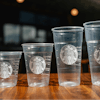PROVIDENCE, R.I. (AP) -- The Rhode Island Supreme Court overturned a landmark verdict against three former lead paint companies Tuesday, a major setback for communities that want the companies to decontaminate hundreds of thousands of homes and other buildings.
The unanimous decision reversed the lone victory to date against the lead paint industry.
A jury found Sherwin-Williams, NL Industries Inc. and Millennium Holdings liable in 2006 for creating a public nuisance by manufacturing and selling a toxic product.
The companies would have been required to clean up contaminated homes. The state had said that would cost $2.4 billion and require inspections and work on hundreds of thousands of homes built before 1980.
The court said the state failed to prove that the presence of lead paint was a public nuisance in Rhode Island and that the lawsuit should have been dismissed.
A lawyer for the companies called the ruling a "victory for common sense."
"This case never should have been filed," said Charles H. Moellenberg, Jr., an attorney for Sherwin-Williams. "It was factually wrong and legally flawed. A company should not be held liable when there is no proof that it did anything wrong."
Shares of Sherwin-Williams jumped 4.8 percent, or $2.19, to $48.12 at the open of trade. NL Industries rose 4.9 percent, or 47 cents, to $10.00.
Jack McConnell, a lawyer for the state, would not immediately comment.
Rhode Island was the first state to sue over the harms of lead paint, which studies have shown can cause brain damage, coma and even death in children exposed to flaking paint chips or dust. The state's lawsuit, filed in 1999, targeted former makers of lead pigment, which had long been used in paint to make it more durable.
The first trial ended in 2002 with a hung jury.
The case went to trial again in the fall of 2005. The jury ruled against three manufacturers and absolved a fourth, Atlantic-Richfield Co. It remains the only court case the lead paint industry has lost.
Though lead-based paint was banned from residential use in the U.S. in 1978, lawyers for the state say it has poisoned tens of thousands of children since the early 1990s in Rhode Island, where a large percentage of homes were built before the ban took effect. They said lead paint remains in an estimated 240,000 properties.
The state said the companies continued manufacturing and selling lead-based paint even though they knew it was unsafe. It said that unlike property owners, landlords and taxpayers, the companies have done nothing to deal with the problem.
The companies argued that the number of lead-poisoned children was steadily declining. They said the state never presented any evidence that their products were used in any Rhode Island home or had even been sold in the state.
The state's $2.4 billion cleanup proposal, which the companies are challenging separately, is being reviewed by two public health experts appointed by a judge.
It would require the companies to remove or permanently enclose lead paint from homes built before 1980, two years after lead paint was banned, as well as elementary schools, playgrounds and child care centers. The state says its proposal would take four years and involve 10,000 workers.
There have been efforts around the country to sue lead paint makers, but so far no other case has been successful. Several suits are still pending, including in Ohio and California. The top courts in New Jersey and Missouri last year rejected public nuisance lawsuits against the companies, while a jury in Milwaukee in November ruled in favor of NL Industries in a suit brought by a poisoned child.






















